News & Updates
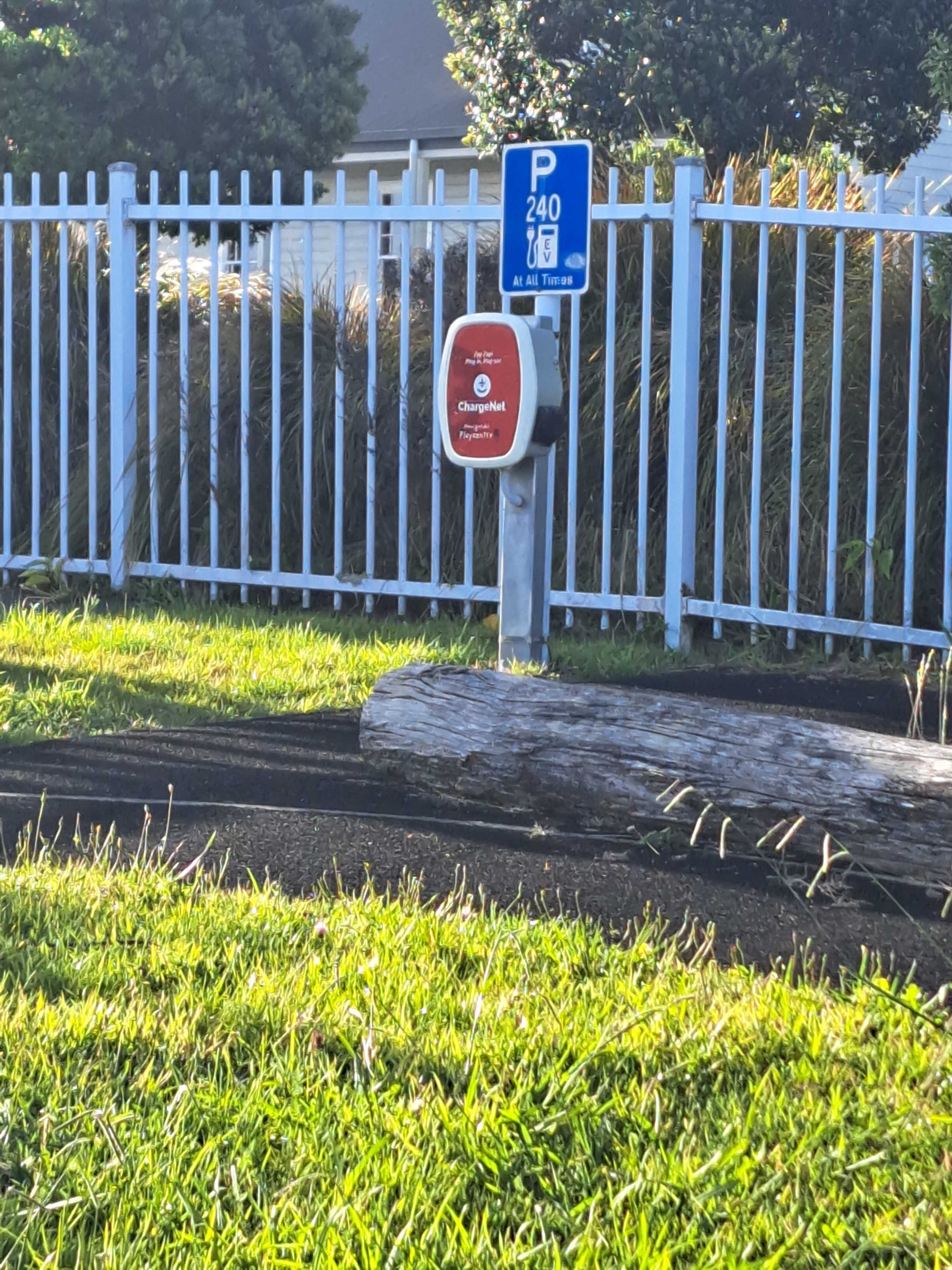

Everyone is rocking on down to Electric Avenue today (this one online, not that other small one in Hagley Park in Christchurch), so let's ride the lightning: profits and electricity prices keep going up, as panels keep going down; a new paper puts a number on how much more homes with solar sell for; we're bottling things up with big and small batteries and they are eating into gas in Australia and California; transport emissions drop across the Tasman as a result of Government EV incentives, while HEB Construction electrifies its fleet; electrons are coming from above in China; and Xpeng announces the arrival of a crazy looking electric van/aircraft carrier.
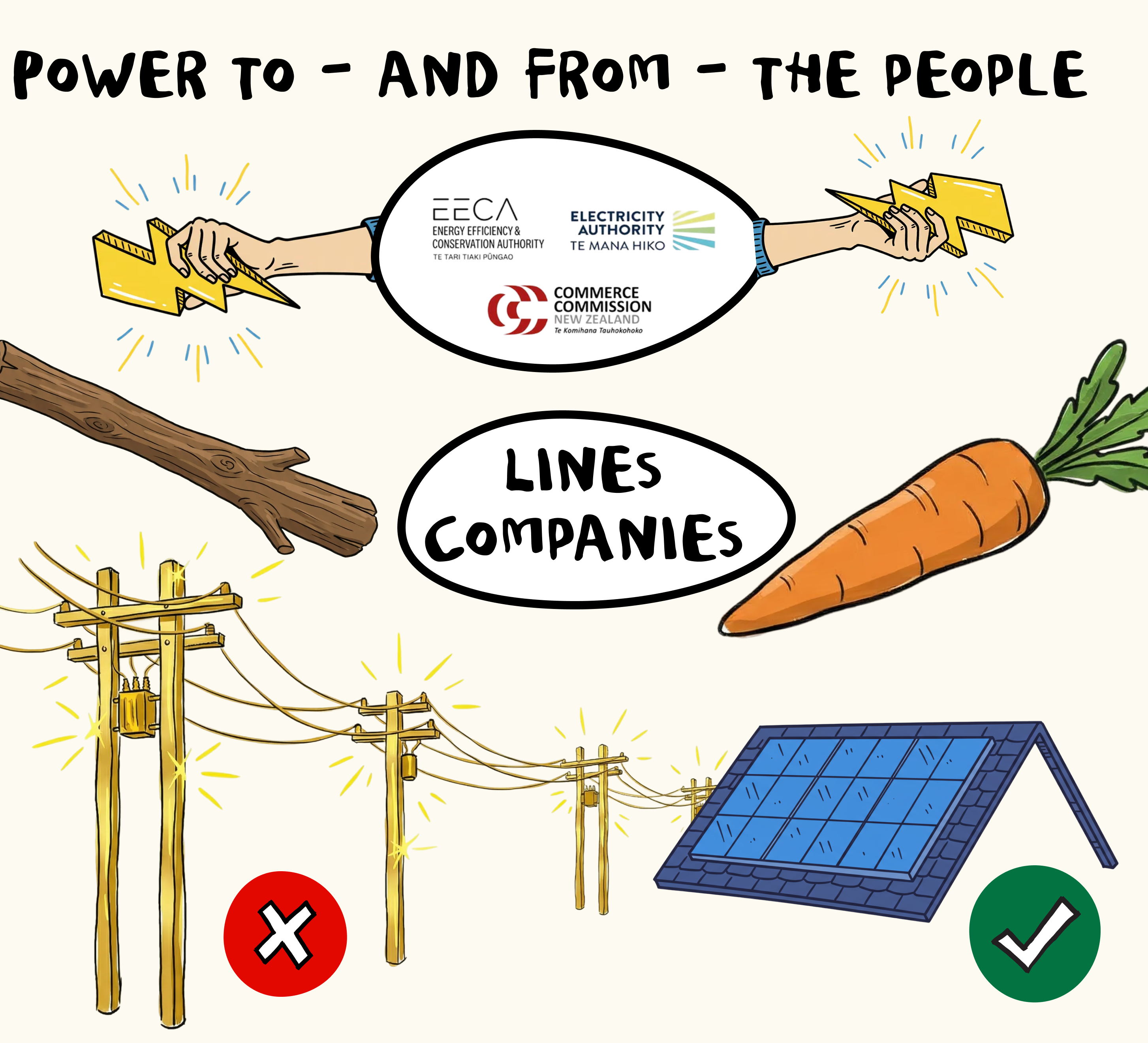

Warren G and Nate Dogg said it best when they said: 'Regulators, mount up!' - and this week, they have.In a rare joint open letter, three different regulators - EECA (Energy Efficiency and Conservation Authority), the Commerce Commission and the Electricity Authority - have basically told the lines companies to pull their socks up and make the most of ‘non-network solutions’ (AKA stop building more expensive poles and wires and start looking at customers and new technology as part of the solution!).
.jpg)

"The LNG announcement from earlier this month has set the stage: electricity, and the energy sector more broadly, is set to be a major election issue this year. Casey has compared electricity to telecommunications, an area where services have become much cheaper in the last decade with technology advancing. “There are supply challenges for the grid and natural gas, and increasing pressure to find sustainable alternatives as reliance on fossil fuels becomes less viable,” he wrote in a Newsroom piece earlier this month, heralding the “electric election”.


“As long as you’re reducing your reliance on fossil fuels, there’s very little room for regret.” That’s a statement we can get behind and it’s something Rhys Boswell, the operations manager at Christchurch Airport, is continuing to push for.


Rewiring generally supports the improvements proposed in the Bill, and seek that the scope of these improvements be expanded to include the legislative changes required to enable the Ratepayer Assistance RAS due to the significant infrastructure and cost of living improvements this innovative financing RAS unlocks.


First 32 Solar on Farms demonstration grants handed out by EECA, more farmers running on the sun for bill reductions and resilience gains, BYD flashes everyone with its super fast charging and gets set for V2G, China drops a 10,000 ton electric container ship; why more electricity in more electric machines is the big climate story of 2026, how a coal museum in Kentucky got solar, and a bit of heat pump humour and LNG levity.


We believe the Multiple Trading Relationships proposal will benefit consumers by providing customers with more choice over how they buy and receive fair payment for exported solar.
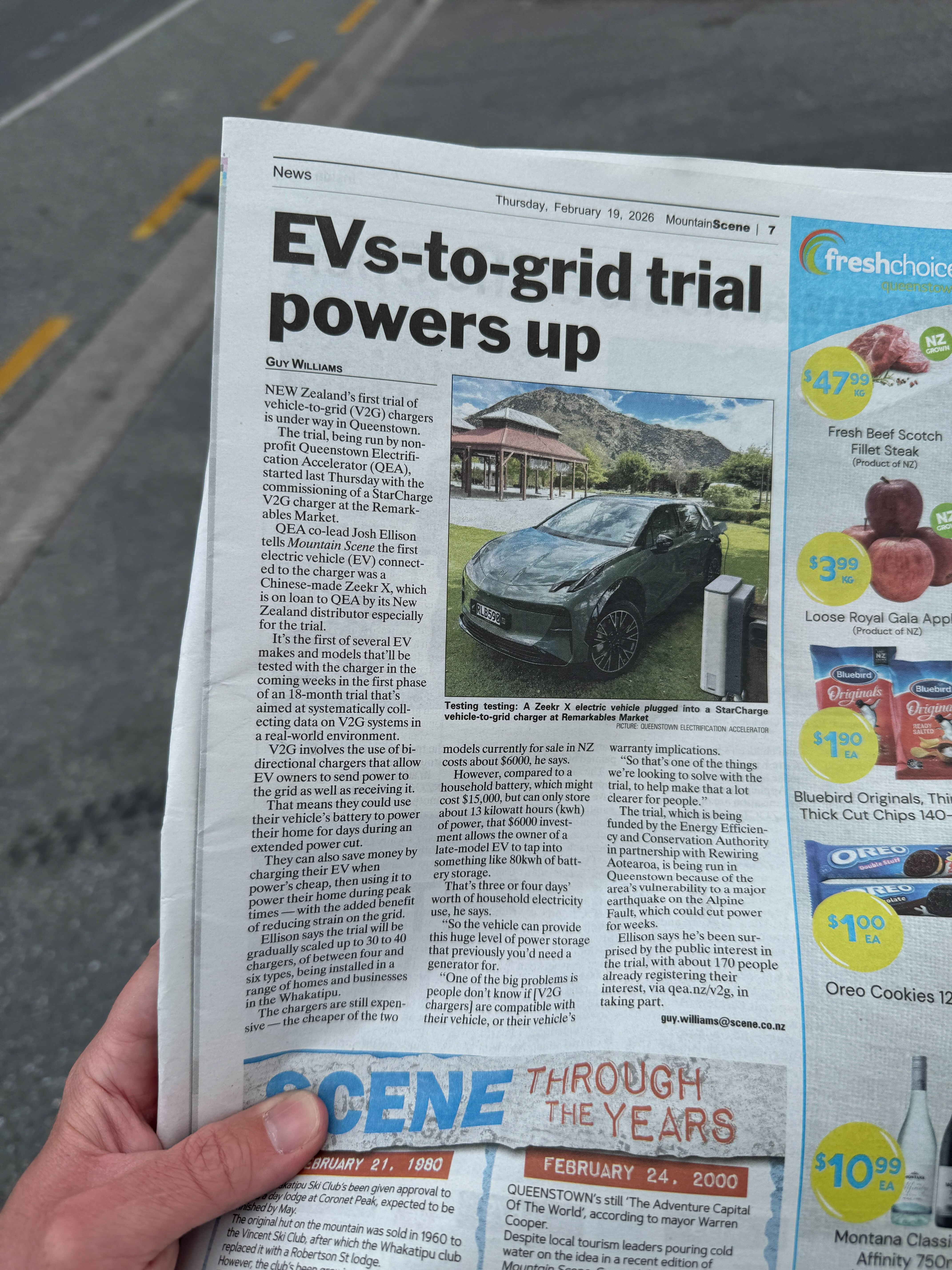

The Mountain Scene has covered the arrival of the first two-way charger as part of the country's biggest vehcile-to-grid trial. The trial is being run by the Queenstown Electrification Accelerator and EECA, and a Zeekr X provided by distributor Nordeast is the first vehicle to be tested. As QEA co-lead Josh Ellison says: "One of the big problems is people don’t know if [V2G chargers] are compatible with their vehicle, or their vehicle’s warranty implications. So that’s one of the things we’re looking to solve with the trial, to help make that a lot clearer for people.’’ This charger is for testing purposes only and not for public use.
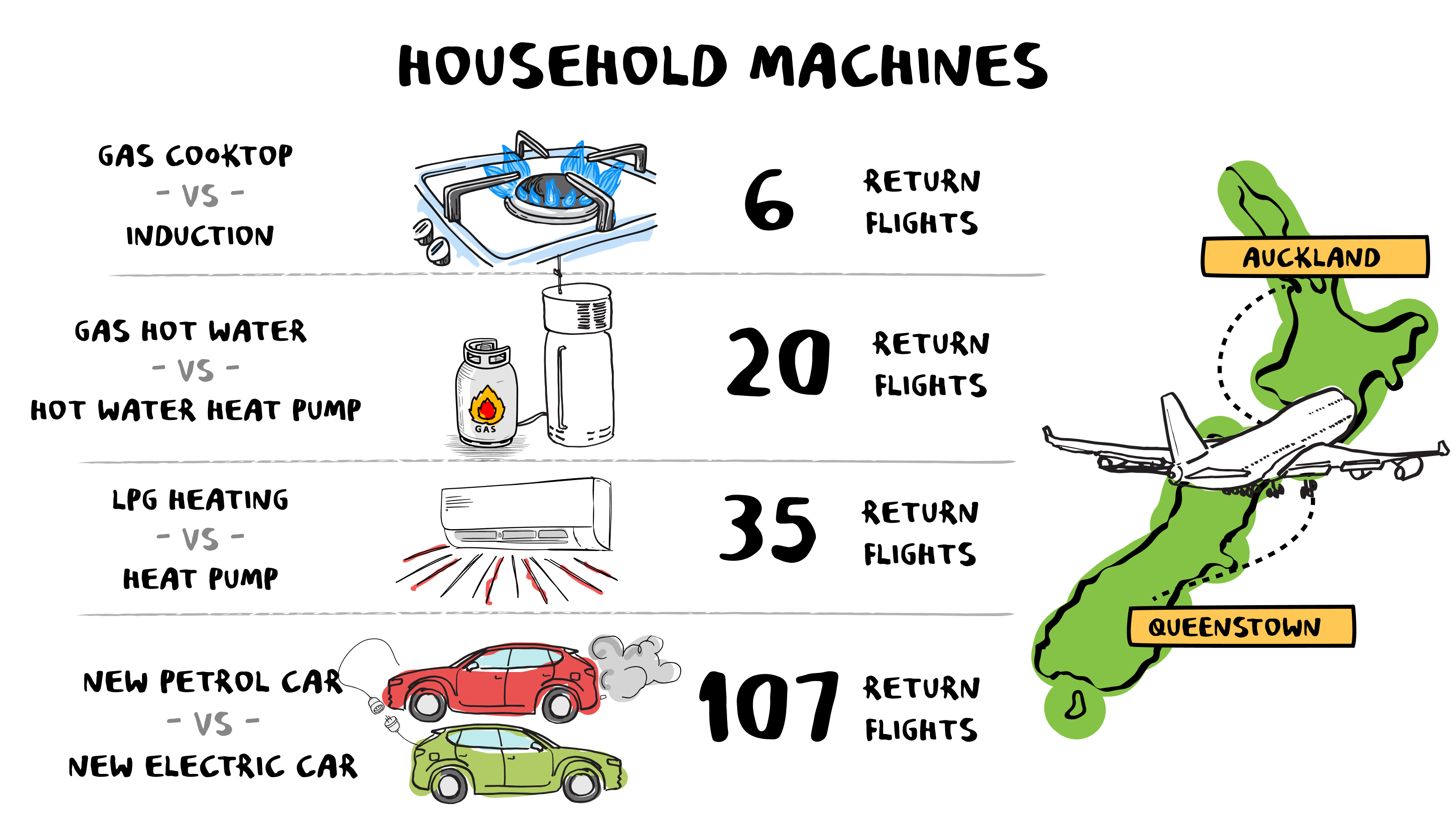

We should definitely be moving away from fossil fuel machines at the big end of town, and the LNG terminal has united almost everyone in opposition on both economic and environmental grounds. But raging against your fossil fuel machines at home and swapping them for better-performing electric options is one of the best ways to reduce your own household emissions.
.png)

Talk about going in one door and out the other.More people than ever are struggling to pay their energy bills. There is a system designed to help those in that situation and a total of $562 million was paid in the last financial year through the Winter Energy Payment. There are additional emergency payments on top of this. And this completely ignores the wider health and social costs of 'energy poverty.' Interestingly, a similar amount - $482 million - was paid to the Government in dividends from its shares in the gentailers Meridian, Mercury and Genesis in the last financial year.


Compared to most of our MPs, Scott Willis is a very early adopter. As the latest episode of our 'Political Power' series shows, the Green MP's home in Waitati has had solar panels on the roof since 2013 and he bought a Nissan Leaf in 2016. He runs a full suite of electric gardening gear - which can often be a powerful gateway drug after people see how well they perform - and recently upgraded to a BYD Atto3 with a 60kwH battery.


“People come up and ask, ‘Are you bribing politicians?’ And my answer to that is, well, I’m bribing them all equally,” he said. Each box was worth close to $90. But Mike said the cherries were less about currying favour and more about opening a cross-party conversation on electrification. “I want it to not be a political hot potato, because I genuinely believe, no matter what side of politics you’re on, electrification is good for the country. From an energy sovereignty, an energy security, an economic and a climate perspective, everybody wins.”
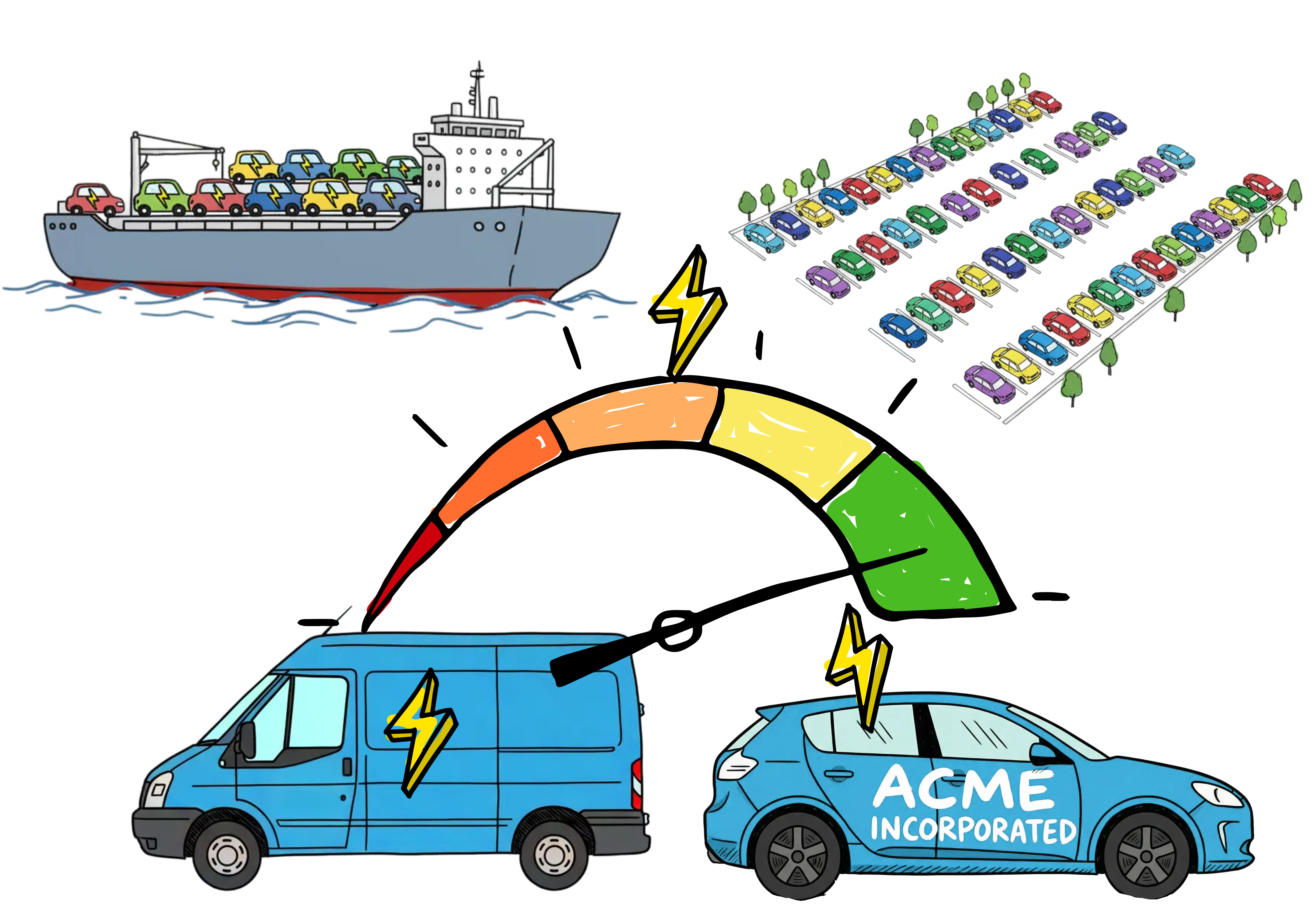

Around 150,000 new vehicles are purchased every year in New Zealand and around 60% of them are bought by businesses. We reckon a lot more of them should be electric - both for the benefit of those companies but also to seed the second-hand market - and that could be on the cards now because one of the major barriers to fleet EV uptake has been removed.


"New Zealand's greatest gift is the natural battery that we already have, those massive hydro lakes. They store about 6 to 8 weeks of water. We could increase the size of those lakes or bring other generation online to turn that into 10 to 12 weeks, or even longer than that. And that's where I think we should be rolling out solar."
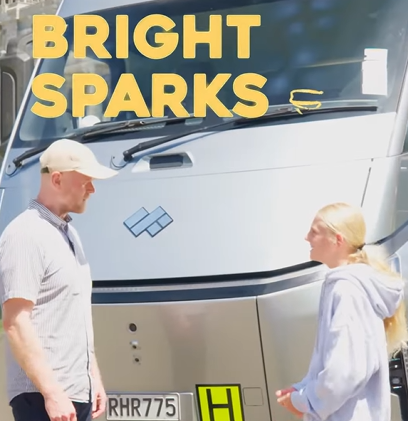

It's quiet. It's comfy. And it's fast. Those are the things Sky Ryan loves about the Deepway electric truck, which recently dropped off 123 boxes of cherries to all our MPs as part of The Great Electric Cherry Migration. Her dad Jamie is the general manager of Etrucks, a company bringing lots of big electric kit into the country, and when we talked to her the pair were about to embark on a roadtrip back to Auckland after a successful stint in Parliament grounds. Understandably, she was most looking forward to the multiple ice cream stops along the way and we're pleased to report she got two triple-scoopers.


Renewable energy advocacy group Rewiring Aotearoa has taken its electrification message to Parliament in a colourful stunt dubbed the “Great Electric Cherry Migration”. The group delivered cherries to MPs at Parliament grounds, arriving in an electric Deepway truck and drawing attention from politicians and passersby alike.


'Gas backwards' policy signs us up for an expensive new international fossil fuel subscription with no guarantee of lower bills, Gull provides a good comparison with EV charging prices added to its sign, Ferrari launches its new electric car with the help of Apple's Jonny Ive, Lightforce wants to put solar in every carport, how to adapt your life to run on the sun, and an old home in the UK gets the Zero Bills treatment.


Mike Casey features on The Hoon, and discusses the role of domestic gas for industry, using solar to keep water in the dams for dry years, and why it is so much easier to roll out solar on the households, farms and businesses.
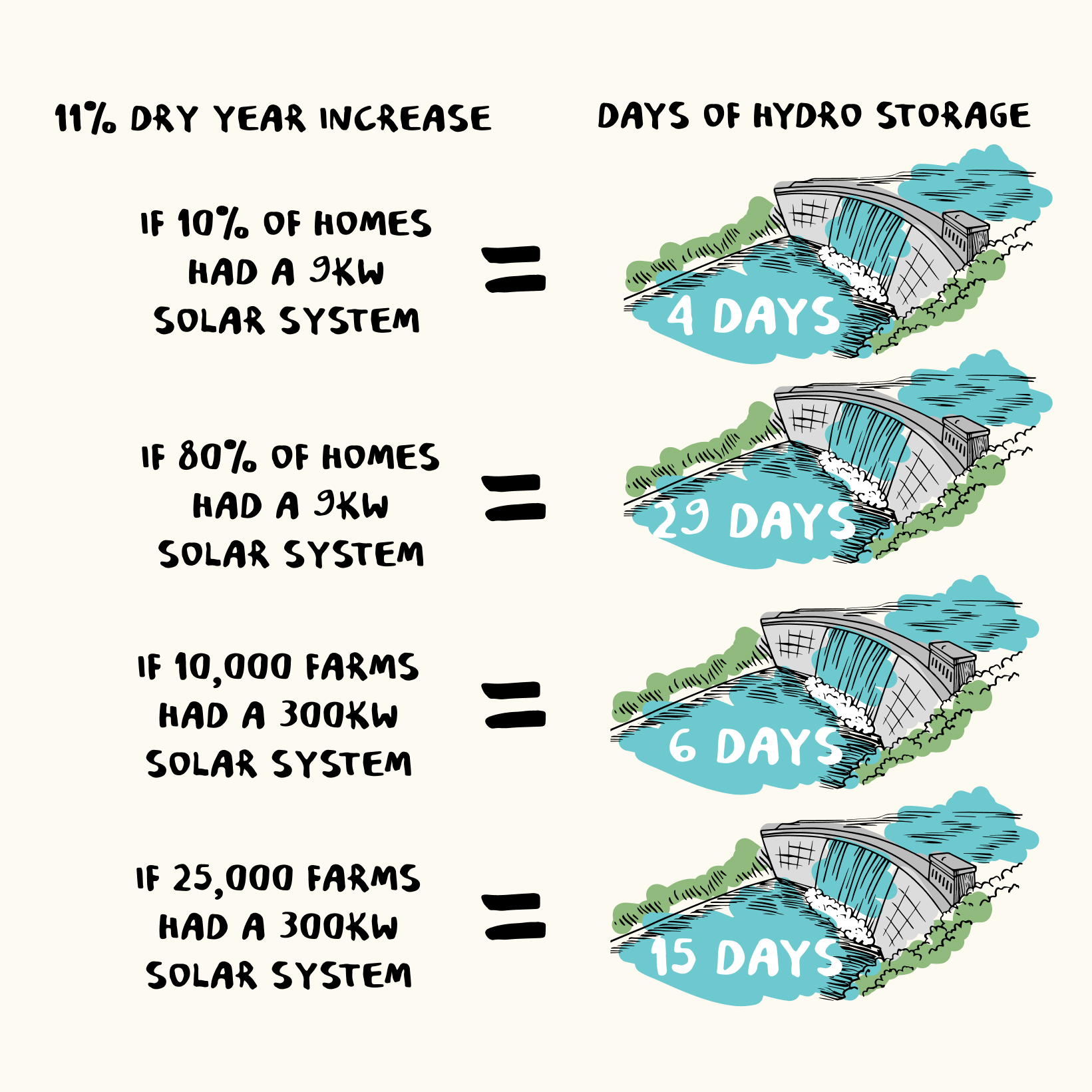

Bernard Hickey laments the LNG decision, asks a question we've been asking, and speaks with energy analyst Larry Blair.


RNZ's Midday Rural News spoke to Mike Casey about the Great Electric Cherry Migration, which arrived in Wellington the day after the Government announced an LNG import terminal that's set to cost "north of $1 billion". Casey says it's the wrong answer to the dry year problem and that this transition is not just about moving from fossil fuels to electricity, it's about moving from being reliant on energy imports to gaining energy sovereignty and generating as much of the energy we need ourselves, as he does on his orchard.
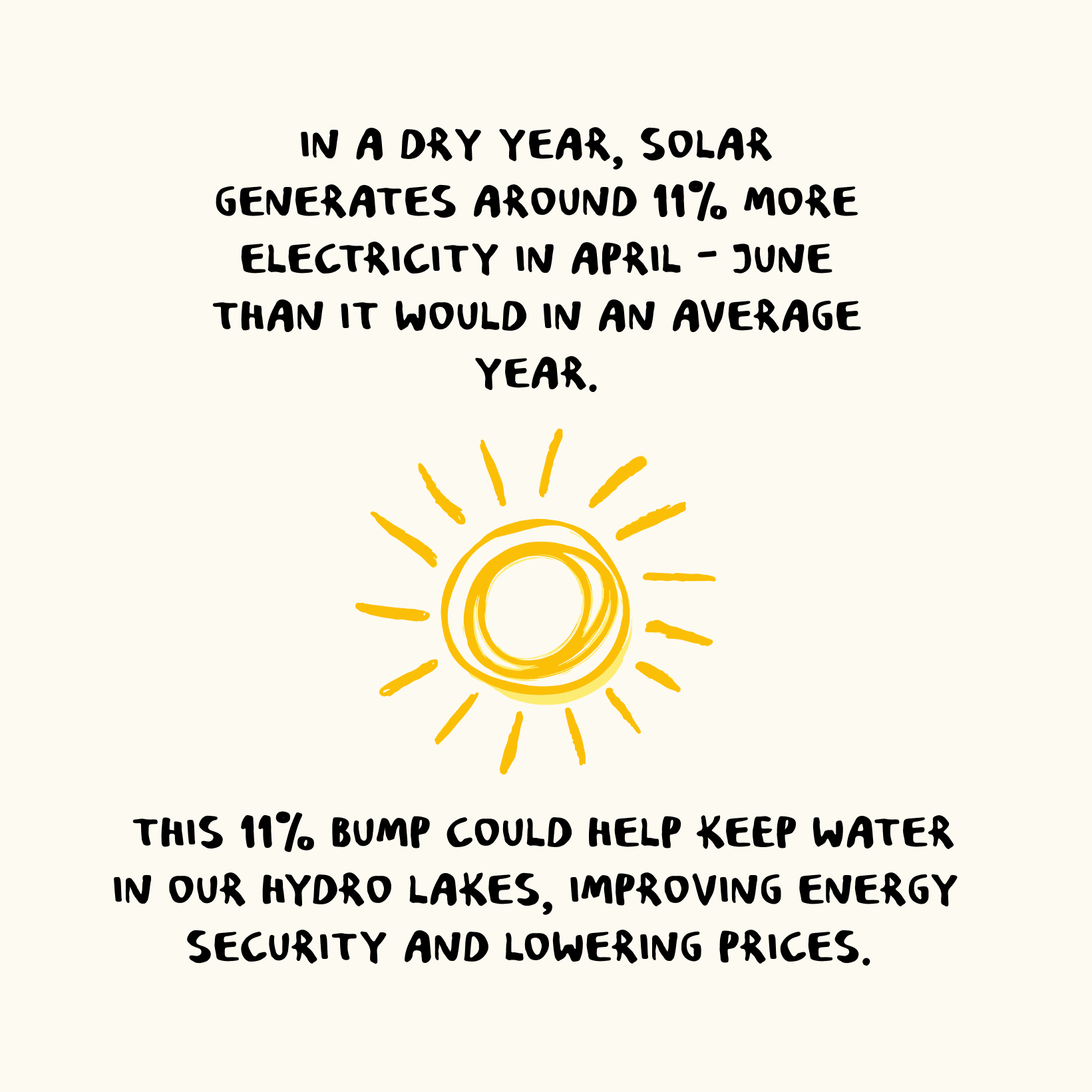

"You can call it a forced investment. You can call it a levy. You can call it a tax. It is a guaranteed increase in New Zealand's power bills with no guaranteed return on that investment. And I think that's a bit of a howler." Mike Casey speaks with Newstalk ZB's Kerre Woodham about the proposed LNG terminal and why New Zealand would be better off with a portfolio approach, including more renewables, more solar, better use of existing domestic gas reserves and coal or diesel peakers if required.

Rewiring generally supports the improvements proposed in the Bill, and seek that the scope of these improvements be expanded to include the legislative changes required to enable the Ratepayer Assistance RAS due to the significant infrastructure and cost of living improvements this innovative financing RAS unlocks.
Read moreShareable linkDownload
We believe the Multiple Trading Relationships proposal will benefit consumers by providing customers with more choice over how they buy and receive fair payment for exported solar.
Read moreShareable linkDownload
Rewiring Aotearoa is very supportive of the Electricity Authority’s introduction of requirements for distributors to provide payments for exports at peak based on the avoided long run marginal cost of peak demand. This will fairly support consumers to invest in batteries and encourage people to supply surplus energy to the network when it is needed, benefiting all customers through lower electricity costs that we all pay through our power bills. To unlock the full extent of these benefits it is important that the intended group of customers have access to these payments. This intended group is the small businesses who do not have the bargaining power to negotiate fair benefits. It excludes large customers who are already more likely to be rewarded for the benefits their injection (exports) provides. Unfortunately the preferred proposal the Electricity Authority (the Authority) has set out in this consultation will not achieve this, and will reduce benefits to customers and does not align with the Authority's statutory objectives.
Read moreShareable linkDownload
We strongly support the Electricity Authority’s aim of removing unnecessary barriers to more efficient investment in distributed generation and maximise the benefits it brings for all New Zealanders. It is great to see the progress the EA is making in its Networks connection workstreams which will translate in real benefits for consumers. We agree with the Electricity Authority's description of benefits from distributed generation and support the proposals set out in this consultation although propose some additional measures and modifications.
Read moreShareable linkDownload
Solar and batteries - in homes and EVs - offer signicant resilience benefits during times of crisis and the Ratepayer Assistance Scheme can help unlock private investment.
Read moreShareable linkDownload
Electrification is the single biggest opportunity to improve fuel security in New Zealand and that's why we think we need a bold national energy independence plan, not just more incremental changes to our current fuel security plan.
Read moreShareable linkDownload
Unmanaged EV charging that occurs at network and system peaks could add unnecessary electricity infrastructure investment, increasing bills for all customers. Investment in our networks is scaled to meet peak demands and has the potential to significantly increase electricity bills over the coming decades. It is important we take action to shift demand, where it makes sense, to avoid peak demand increases. Rewiring Aotearoa is very supportive of the efforts the Ministry of Business Innovation and Employment is taking to consider options to deliver a more flexible electricity system that will lower system costs for all consumers. Uptake of smart EV chargers is one way to manage peak EV demand and support a lower system cost. However we do not think there is a strong enough case to mandate that all fixed EV charging units sold in New Zealand must be smart.
Read moreShareable linkDownload
Rewiring Aotearoa supports the proposed changes to Multiple Trading Relationships (MTR) (allowing two traders – distributed generation and consumption), which will increase consumer choice and introduce more competition to retail tariffs. For example, it will disincentivise tariffs that offer competitive export tariffs, but also ramp up consumption tariffs. The Electricity Authority should also implement changes at this time that require retailers to allow large sites to share solar across multiple co-located installation control points (ICPs, i.e. ICP aggregation), and facilitate peer to peer trading for small scale renewable generators with local sites. Rewiring Aotearoa disagrees that delaying these steps via a staged approach is in consumers best interest. Consumers should not have to wait until demand increases to unlock the benefits of their solar and battery systems or access more competitive options from retailers. This should be supported now, to help consumers make investment and retail tariff decisions that reduce their overall energy bills.
Read moreShareable linkDownload
We appreciate that broader resource management reform is underway that will ultimately provide a more consistent national framework. However, we cannot afford to wait for the perfect system while workable solutions are delayed. In the meantime, inconsistent and unnecessary consenting requirements for small-scale ground-mounted solar are slowing down projects that could deliver immediate benefits - lowering energy costs, strengthening resilience, and supporting the grid. While long-term reform is important, immediate adjustments will ensure small-scale solar isn’t held back by outdated or inconsistent rules.
Read moreShareable linkDownload
"Investing in natural gas in homes doesn’t make economic sense anymore for New Zealanders ... Rewiring Aotearoa’s view is that the Government should support a managed transition away from natural gas for the homes and non-industrial businesses connected to reticulated natural gas distribution networks. This would help address inequity for households on low incomes and renters, and provide greater certainty over how quickly customers will disconnect, when networks would likely retire and cost recovery timelines."
Read moreShareable linkDownload
Rewiring Aotearoa's submission highlights that successful digitalisation should allow customers to maximise benefits from their provision of demand flexibility and solar and battery exports, without third parties (aggregators or VPPs) routinely taking a cut of the value. Retail offerings that include time of use prices and fair export tariffs will be key enablers of successful digitalisation of the electricity system. Customers need a fair deal through their electricity prices and export tariffs. This means the customers need to have the option to choose from a range of retail tariffs that include time of use prices, fair export tariffs (that reflect the value in the wholesale market) and symmetrical export tariffs from distributors.
Read moreShareable linkDownload
Rewiring Aotearoa is extremely supportive of the focus the Electricity Authority is putting into exploring opportunities and seeking views on a more ‘decentralised’ electricity system. It’s great to see the release of the Green Paper seeking views from New Zealanders on the role they can play in the future electricity system and how a more decentralised electricity system should evolve. As the Green Paper explains New Zealanders will benefit from a more decentralised, community-centric energy system through lower energy bills, greater energy resilience, fuel security and lower emissions. However there are some assumptions and emphasis in the Green Paper that we think needs to change
Read moreShareable linkDownload
Rewiring Aotearoa is supportive of the Innovation and non-traditional solutions allowance (INTSA) and the development of Guidance for submissions. Read our full submission by downloading the document.
Read moreShareable linkDownload
While the potential implications of the Bill are wide-ranging, our submission has focused on the potential implications for the electrification of Aotearoa NZ if the Bill is enacted as proposed. This is pertinent to Rewiring’s work, because one of our core aims is to help reduce energy bills for customers - NZ’s households, farms, and businesses. Significant changes are needed to fix the status quo, and we are concerned that the Bill may inadvertently bake in the existing rules governing the sector.
Read moreShareable linkDownload
Rewiring Aotearoa is supportive of the development of Publicly Available Specification for Residential solar photovoltaic (PV) and battery storage systems guidelines. These guidelines can provide a consolidated and trusted source of information to help households navigate the process of choosing and installing solar PV and batteries. There is some messaging and information in the PAS that we think needs to be changed or added to provide households with the best advice to support them to maximise benefits from solar PV and batteries. This includes removing the focus on pay back periods and informing households about cost savings from day one from solar PV and batteries financed over the life of the system. Households also need information about the potential risks of some existing lease to own sales models which provide little real benefit to households with the bulk of the savings captured in suppliers profits. Download the document to read our full submission.
Read moreShareable linkDownload
In a cross-submission, Rewiring Aotearoa has responded to a range of concerns raised by other submitters in the Energy Competition Task Force's consulation.
Read moreShareable linkDownload
We support the role that government procurement can play in benefitting every community across the motu. We agree that simplifying and streamlining the procurement process is important, and reducing rules is a logical starting point. However, this should not undermine key considerations and past efforts in ensuring government spending supports long-term positive outcomes. Government procurement can support us to go for growth by increasing productivity of energy, which is a fundamental economic input
Read moreShareable linkDownload
Overall, Rewiring Aotearoa welcomes the objectives of this package of proposals. from the Energy Competition Task Force. We view the package as a critical step in improving energy system outcomes for all consumers. We consider retailers paying consumers fairly as a critical step, and we are mostly satisfied with the Task Force’s approach to this (initiative 2C) and think it will create better outcomes for New Zealand consumers and the energy system as a whole. In contrast, the Task Force’s preferred option around how distributors are required to reward peak input from consumers (initiative 2A) will not in our view meet the Task Force’s (or the Electricity Authority’s) stated objectives.
Read moreShareable linkDownload
Focusing on the emissions reductions at home through electrification is a major opportunity (and challenge) for Aotearoa NZ. Homes, farms, and businesses must play a role in driving emissions reductions through electrification and the potential must be recognised and addressed to our 2035 international climate change target.
Read moreShareable linkDownload
Rewiring Aotearoa believes we need to make better use of our existing infrastrucuture, see customers as an essential part of a 21st Century energy system and that electrification will lead to much greater energy security and resilience.
Read moreShareable linkDownload
Rewiring Aotearoa's submission to the Electricity Authority on its Network Connections Project - Stage One is in and it is good to see the Authority practicing its statutory objective of protecting the interests of consumers.
Read moreShareable linkDownload
The Ministry for Business, Innovation and Employment opened consultation on a discussion document about amendments to the Electricity Safety Regulations to expand the permitted voltage range for electricity supply. Rewiring Aotearoa's submission believes changes are needed to prepare for the rapid adoption of customer energy resources, and electricity distribution companies need to be compelled to allow export limits to be increased.
Read moreShareable linkDownload
The Department for Prime Minister and Cabinet and the Ministry for the Environment proposed a topic for a Long Term Insights Briefing entitled 'Everyone plays a part: building New Zealand’s resilience in the context of global trends and our unique natural environment'. Rewiring Aotearoa's submission says energy security and resilience, critical infrastructure failing and commodity/energy price shocks are especially important for Aotearoa NZ’s resilience to future challenges, and farms can also play an important role.
Read moreShareable linkDownload
Our ERP2 submission outlines what we think needs to be done to improve the Government's plan to reach our climate targets, electrify the Aotearoa New Zealand economy and build a fairer future energy system for New Zealanders that saves people money and does not leave anyone behind.
Read moreShareable linkDownload
There is a relevant saying: ‘Information wants to be free’. While the proposed Consumer and Data Product Bill takes a step in that direction, it does not offer the level of freedom that could be technically accomplished, nor the level of freedom that is likely to unlock the maximum level of innovation.
Read moreShareable linkDownload
Rakiura / Stewart Island faces the highest electricity prices in New Zealand. Successive governments have funded report after report and numerous fly-in visits by Ministers have failed to change this situation for the local community. Rewiring Aotearoa believes the opportunity is to harness existing solar and battery technology to deliver significant cost-of-living savings and reduced emissions at scale via electrification on Stewart Island right now. With financed solar and batteries, electricity usage costs for residents could be halved without delay. Rewiring Aotearoa has been engaging with the local community, who have been sending us their power bills. On Saturday 27th April some of the Rewiring team visited Stewart Island (including Mike Rewi who has strong whakapapa to Stewart Island). What we are hearing from this community is many locals fear the proposals and the likely “preferred option” will be focused on replacing current diesel generators, not on reducing the cost of energy for consumers. Our proposal outlines Rewiring Aotearoa’s pitch for an alternative approach to develop a community-led energy solution for the Island.
Read moreShareable linkDownload
Overall, we encourage the Commission to think beyond competition merely as a driver for innovation, to consider the outcomes from innovation for the long term benefit for New Zealanders. Rewiring Aotearoa believes one such outcome from market innovation is supporting the electrification opportunity for Aotearoa New Zealand. The Commission has the opportunity to play an active role in driving this not just through the energy market, but also through the personal banking market. It is important that these functions are not seen in isolation, but as a system, to better realise the Commission's role in delivering on NZ’s emissions reduction plan, and 2050 Nationally Determined Contribution.
Read moreShareable linkDownload
18 March 2024: New Zealand is one of the first places in the world where electric appliances and vehicles are now more affordable than their fossil fuel equivalents. A new report has shown that, on average, homes currently using gas appliances and petrol vehicles could save thousands every year if they went electric and got their electricity from a combination of rooftop solar, home battery and New Zealand’s already highly renewable grid.
Read moreShareable linkDownload
In this future, consumer infrastructure needs to compete on a level playing field with traditional infrastructure – if a $10,000 battery on a consumer’s premises can provide the same service as a $20,000 supply-side asset (a network or generation investment), the consumer’s asset should be selected for the service. However, today there is a systemic bias towards traditional infrastructure largely because it is seen as significantly more ‘dependable’. There are a variety of historical reasons for this. Our primary context to this submission is that many of the assumptions and rationale for this bias are quickly falling away, and DPP4 provides a significant opportunity for the Commerce Commission (the Commission) to reset the assumptions and correct some of this bias.
Read moreShareable linkDownload
The EA has the ability to take a leadership role in the energy transition on behalf of electricity consumers. Far more than the Commerce Commission’s oversight of EDBs investment plans, the EA’s network pricing workplan gives consumers agency in the development of the electricity system. When consumer agency is stifled, they will likely have significantly worse financial outcomes on their bills. Much of the necessary changes have been demonstrated already locally or overseas, and the remaining question is not if the changes are possible but if we as a nation will have the courage to implement them on the timeline required to drive better energy transition outcomes for consumers.
Read moreShareable linkDownloadThe biggest barrier to unlocking the household savings that electric technology offers - as well as the many other public benefits - is the upfront cost. Long-term, low-interest energy loans are the ladder we need to get more people over that.
Read moreWe need gas in the short term to generate electricity and for certain industries to keep operating, but gas is expensive, it is likely to get more expensive, and it is running out faster than expected. So how do we use it now? How are shortages and price rises impacting homes and businesses? And what can we replace it with?
Read moreWe need great urban design that encourages electric public and active transport for safe neighbourhoods and healthy lifestyles, but we also need electric cars for rapid decarbonisation and to address all the vehicle travel we realistically aren’t going to shift or avoid. These two things can be complementary.
Read moreWhen it comes to our energy system, we could do the bare minimum and pay the price, or we could think ahead and reap the rewards. Here's what both of those options could look like in 2030.
Read moreYou will always have to pay for an energy subscription. Using renewable electricity in electric machines (and ideally running on the sun) is the cheapest energy subscription you can get. Here's how the numbers stack up.
Read morePlenty of people need cars (and plenty of people still want them), and other vehicles are literal engines of prosperity. We don't have to give them up to reach our climate goals. We just need them to be electric.
Read moreSolar on our rooftops, farms and businesses can displace the emissions generated by burning fossil fuels in our homes and especially our cars, provide the extra electricity we need to run our electric machines, help bring the cost of electricity down for everyone on the network, and improve our energy security by keeping water in our hydro lakes for when we need it most.
Read moreWe often hear from people who aren’t sure if switching to an electric alternative is the right move. One of the most common questions we get asked is ‘will switching to an electric machine actually reduce my carbon footprint if creating the new machine or materials produces emissions?’It’s a fair question, and we completely agree it’s important to think about the full life cycle of the products we buy and use. Electric alternatives, including vehicles, often produce more emissions than fossil fuel equivalents during manufacturing. But, over the lifetime of the machine, they create much less carbon pollution because they don't burn any fuel.
Read moreFossil fuels for homes, transport and industrial processes make up the vast majority of the country’s total energy consumption. Electrifying the machines that use these fossil fuels means we will use more electricity but much less energy overall.
Read moreAn electrified energy system is actually full of opportunities for redesign, reuse, recovery and recycling. There are opportunities for innovators and entrepreneurs to generate value across the lifespan of every energy asset, not least the return of its components to the manufacturing cycle. To explore this further, Rewiring Aotearoa has partnered with Circularity, local experts in circular design and strategy, to explain what the circular economy is, how to integrate circularity into the design of energy systems, and the role of policy strategy to make it happen.
Read moreThere are no free lunches in energy. But some lunches are far, far cheaper than others. Electrifying everything will massively reduce the overall material and energy requirements of the global energy system. This can be said with high confidence. To be sure, renewable energy systems take materials and energy to build. But this is dwarfed by the mind-boggling scale of extraction, consumption and wastefulness of fossil energy.
Read morePeople sometimes talk about ‘carbon tunnel vision’ – that is, the single-minded pursuit of emission reductions at the sake of everything else. But this is the wrong way to think about electrification. It isn’t only about emissions (even though preventing the world from dangerous overheating is quite the co-benefit). It isn’t only about the tech or the kit: the rooftop solar panels, the batteries, the electrified appliances and vehicles. These are just the means to an end. Electrification is about people and it is a fundamentally better way to power our lives and livelihoods.
Read more.png)

The IEA's World Energy Outlook and the age of electricity; zero bills homes are not a dream; impressive Scandi EV adoption but it's happening elsewhere too; Aussie study shows there's no substitute for charging experience; Drive Electric releases home charging report; and Air NZ's electric plane starts testing.
Read more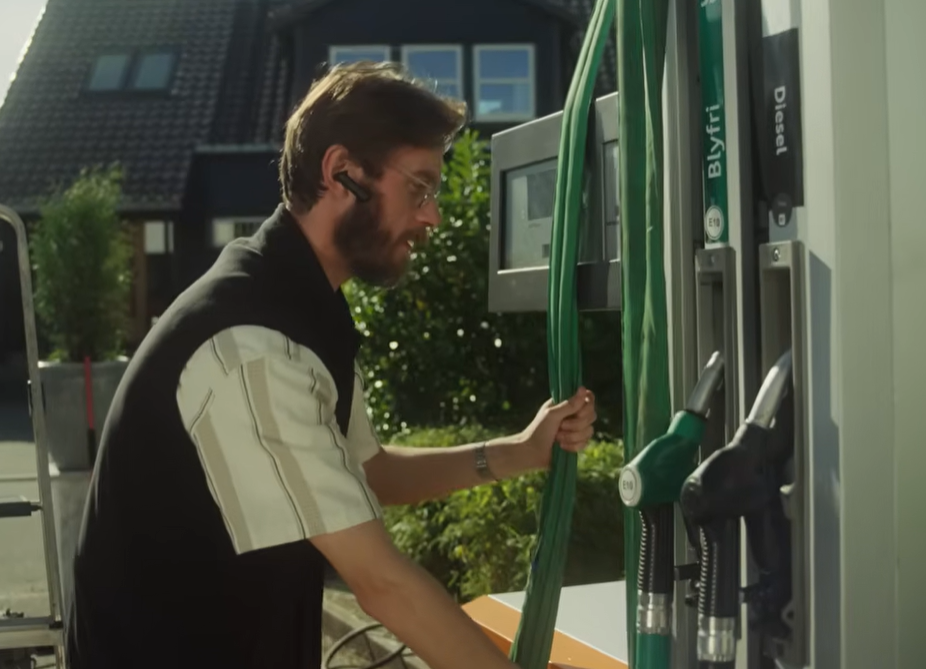

We're throwing a price parity party as BYD announces compelling deals for new electric cars (no need to add wings to save money); another impressive New Zealand marine business E-Stroke looks to retrofit recreational boats and shows the economics stack up; Australia gets creative with its excess solar and batteries that have been installed in a few months as part of the subsidy programme now rival our third biggest power station; New Plymouth District Council gets set to benefit from a big airport solar farm; how thousands of panels are being installed and cleaned with the help of robots; and Norwegian smart charging provider Zaptec tells the inspiring tale of a man on a home petrol pump mission.
Read more

In search of cleaner air, Vietnam prepares to usher in an electric motorbike era, while other developing nations go electric for the economics and the UK goes bananas for small EVs; ten years since the Paris Accord and there are many reasons to be optimistic; America's first all-electric hospital gets set to open; Pila Energy looks to get more storage into homes by focusing on appliances; Australia takes another step forward on V2G and some customers are making good money from renting out their cars; and an electric angle to the Louvre heist.
Read more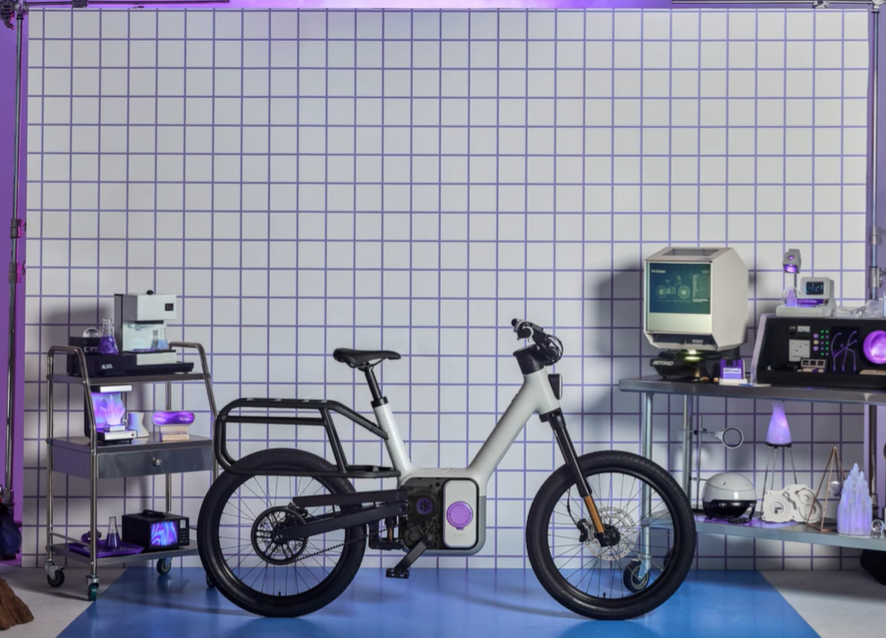

Electric homes and EVs show their worth once again by providing resilience during the recent storms; savvy landlords are installing solar and upgrading gas to electricity to help tenants - and themselves; Basis founder Danny Purcell shares some impressive numbers from his smart panel experimentation; Uber goes from green to electric as it pushes for a zero-emissions mobility platform; Air New Zealand's electric plane and airports investing in solar; and 'transcendent mobility' from Rivian's e-bike spinoff.
Read more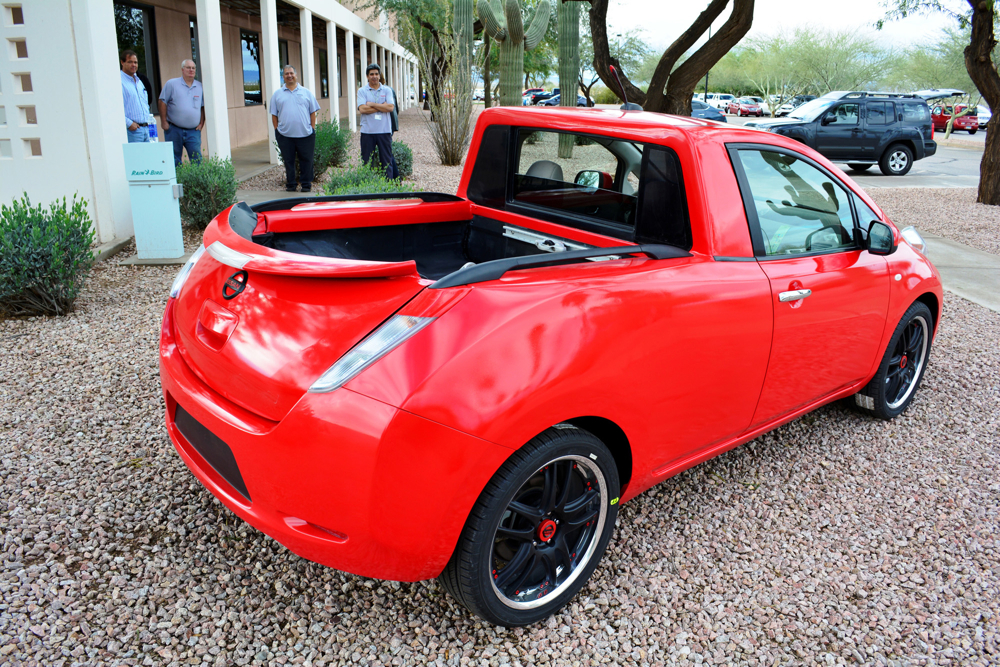

A look at why batteries are a booming business; EECA releases EV charging study; myths, legends and the Hasselhoff approach to EV adoption; a campaign to get more women driving EVs; and musical and spiritual solar.
Read more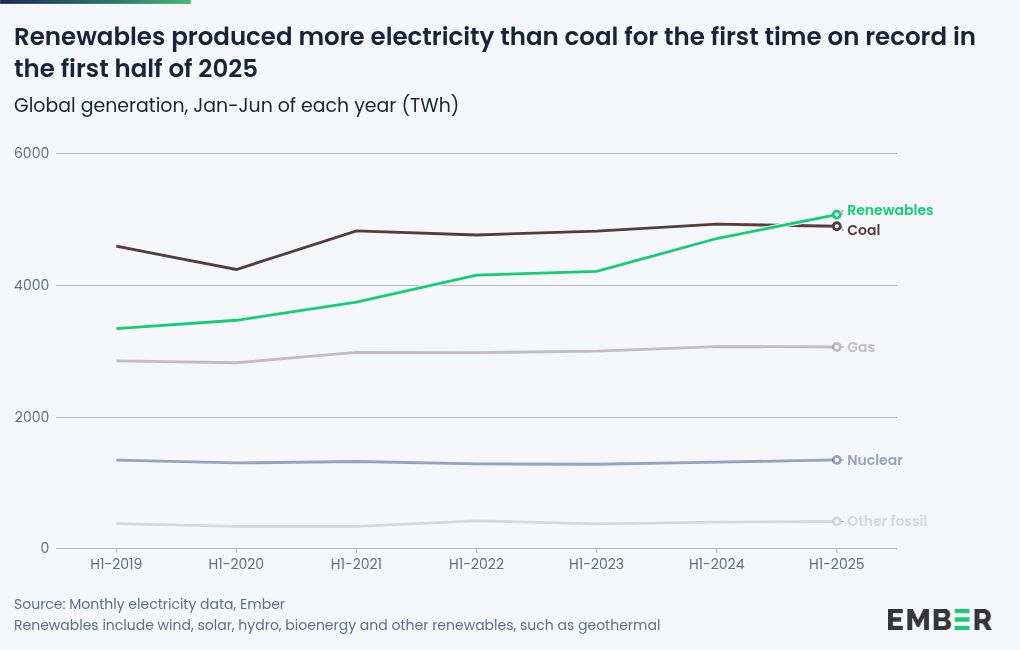

Renewables take over from coal for electricity generation and wind and solar match the world's growth in demand; old EV batteries are proving popular; an Australian study shows that solar panels can make you money, not just save you money; take a trip on a luxury electric solar-powered houseboat in Africa; and the amazing 'solar powered clothes dryer'.
Read more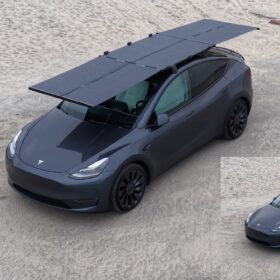

ChargeNet reaches double figures and looks ahead to much more electric transport; an Aussie town at the end of the line goes for pumped hydro, so how does it stack up here?; a new version of rooftop solar offers a little top up for EVs, while trials continue for wireless charging on the road; the EA's Power Innovation Pathway is open for business (and we need all the customer-focused innovation we can get); and a suggestion for those environmentally-focused email footers.
Read more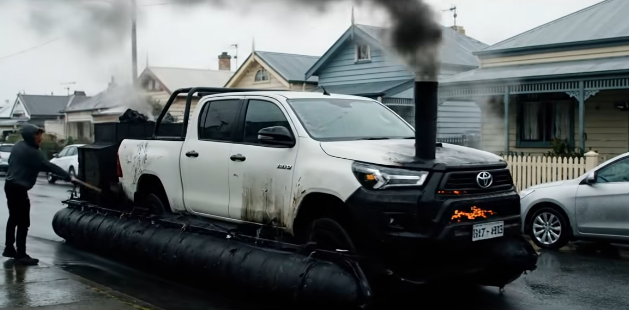

Big report lays out the massive opportunities for electric cars and trucks to provide power for homes or the grid and earn owners money; Lake Wakatipu could be getting some electric ferries; large trucks are increasingly going electric as hydrogen remains tiny; Hannah Ritchie clears the air with her new book; Transpower prepares for another 40,000 kettles on Saturday night; and some coal-based innovation on the West Coast.
Read more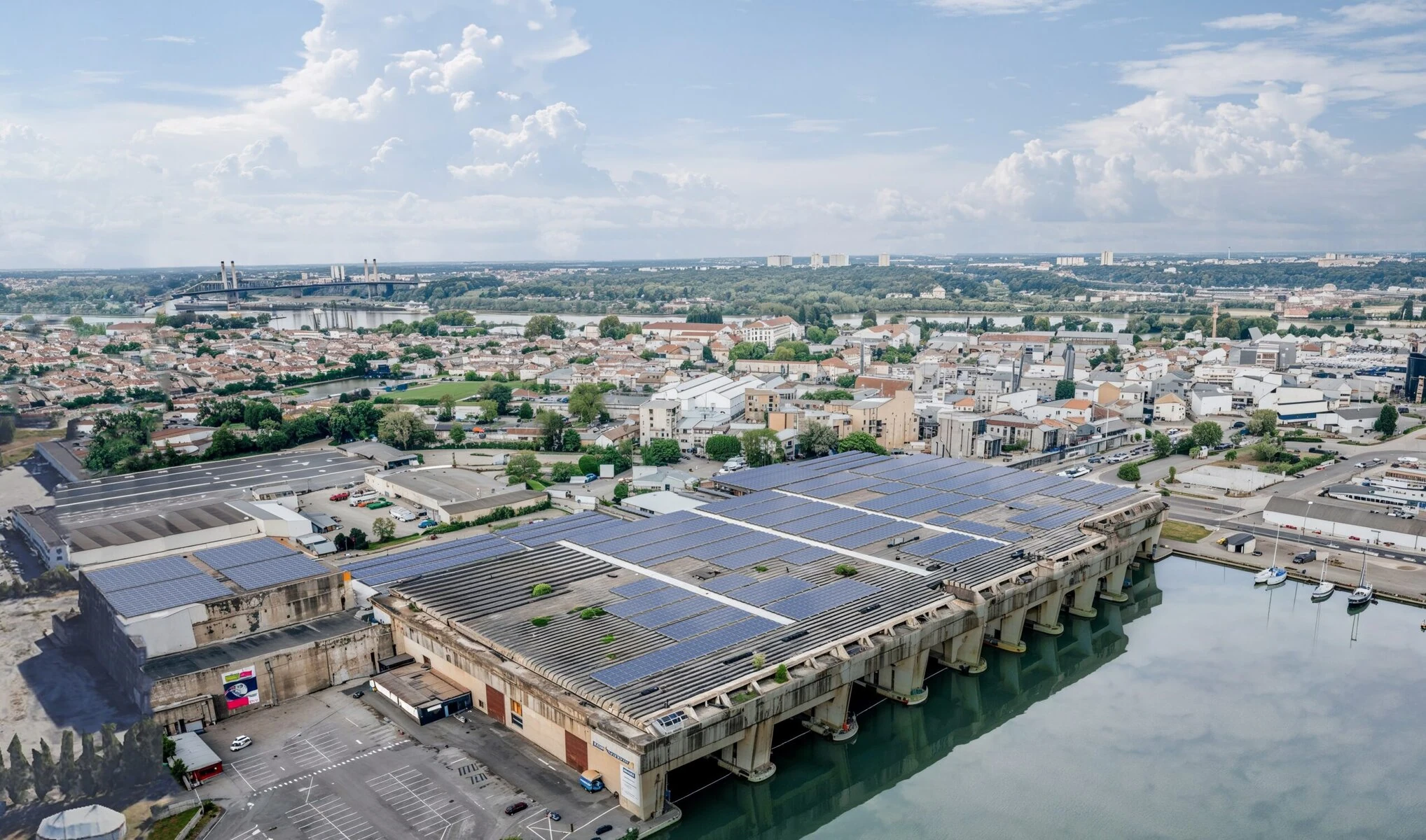

Bordeaux is embracing solar - and modern tech means heritage issues can generally be overcome; Mainfreight welcomes two new electric trucks to its fleet in the US, while Foodstuffs North Island celebrates an electric anniversary; why the radical left and the radical right can unite on solar; Edmund Becquerel's surprise discovery; and why better technologies sometimes take a while to catch on.
Read more

Yet more stunning stats on Australia's household battery boom after the subsidy was announced; the countries doing best on wind and solar on a per capita basis; a big report on China's energy transition looks like bad news for fossil fuels; the lower North Island is set to get the Southern Hemisphere's first battery electric trains, Samoa is set to get some electric solar catamarans, and Auckland is set to get zero-emissions deliveries from Ikea; the Shameless Plug podcast brings kitchen diplomacy to the table; and a song in the key of science from Elle Cordova.
Read more

“As long as you’re reducing your reliance on fossil fuels, there’s very little room for regret.” That’s a statement we can get behind and it’s something Rhys Boswell, the operations manager at Christchurch Airport, is continuing to push for.
Read more

It's quiet. It's comfy. And it's fast. Those are the things Sky Ryan loves about the Deepway electric truck, which recently dropped off 123 boxes of cherries to all our MPs as part of The Great Electric Cherry Migration. Her dad Jamie is the general manager of Etrucks, a company bringing lots of big electric kit into the country, and when we talked to her the pair were about to embark on a roadtrip back to Auckland after a successful stint in Parliament grounds. Understandably, she was most looking forward to the multiple ice cream stops along the way and we're pleased to report she got two triple-scoopers.
Read more

When it comes to increasing EV adoption, the people in the car yards can be very influential. There are always a lot of questions to answer and a lot of misperceptions to confront and Cordt Bensemann from Eastwood Motor Group has been doing that in the Wairarapa.
Read more

For Andrew Cranswick, operations manager at Tumu Timbers in Hastings, the calculation was pretty simple: solar costs had dropped by about a third since they last ooked at it, and power prices had gone up by about the same amount.
Read more

Your coffee machine might be electric, but your coffee beans probably aren't - unless you're buying them from Queenstown roastery Ryder.
Read more

Whether you're looking for an electric fruit picker, a farm workhorse, a high-end golf cart, a food and beverage hauler, a mobility scooter or a fold-up e-bike, Barry Hillyer could be the man you need to talk to. The E-motors showroom in Queenstown is home to an impressive collection of smaller electric machines and, while the big electric stuff like diggers and loaders creates plenty of attention, the small end of town is where the rubber is hitting the road in many other markets, where a lot of the innovation is happening and where the options are increasingly making economic sense.
Read more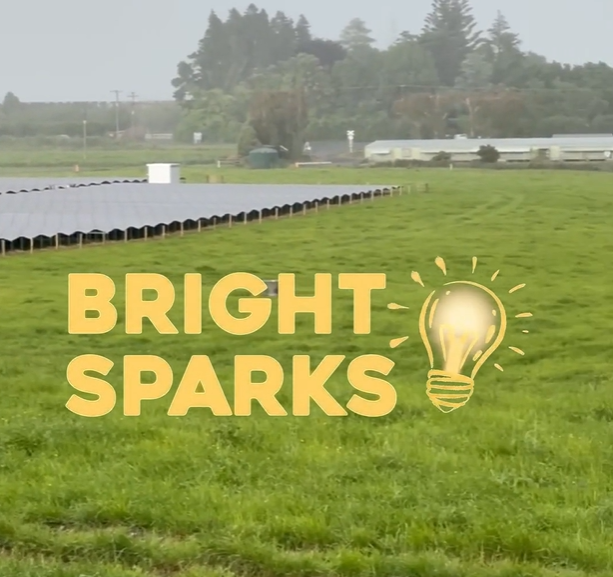

We've seen electric cherries and electric chickens. How about electric piggies? CJ and Tim Lepper run a pig farm in Taranaki and, like a growing number of clever rural folk, they realised that solar was a slam dunk for their business.
Read more

When it comes to electric farming, "the numbers are becoming undeniable," says Nicholson Poultry's Jeff Collings. With 60kW of solar, a Nissan Leaf as a 'farm quad', electric mowers, an electric ute that can run a water blaster, and even a chicken manure scraper made out of a wrecked Tesla that, as Rewiring's Matt Newman says, looks a bit like something out of Mad Max, "almost everything is electric". There aren't many others in New Zealand who have gone this far down the electric road. And, with his electric Stark Varg, the fastest off-road motorbike in the world, he's obviously having plenty of fun on that road, too.
Read more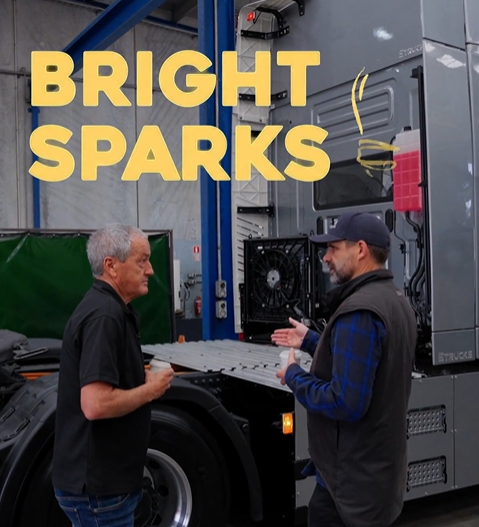

Talk about driving change!ETrucks' Ross Linton is at the forefront of New Zealand's nascent electric trucking scene and can claim responsibility for a number of firsts, from the country's first electric concrete truck to the country's first battery swap set up. Since he brought his first electric truck in to the country back in 2018, the technology has advanced massively and driving on electrons has become quite a bit cheaper than diesel and, not surprisingly, that's inspiring a great deal of interest among businesses.
Read more

'I'm a bogan and I have no problem with the bastardisation of motor vehicles. You can stick whatever motor you like into whatever else you like.' Antz Davies, you are a true boganic Bright Spark and we salute you because it's the bogans that we need to be convincing! Davies is the main brain behind Watt Rods, a Lower Hutt company that converts old cars to electric. "Any and all vehicles, old or new, four wheels or two, big or small, on road or off, fully customised to your requirements."
Read more

